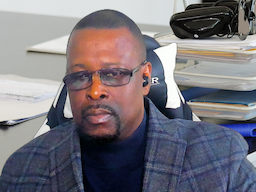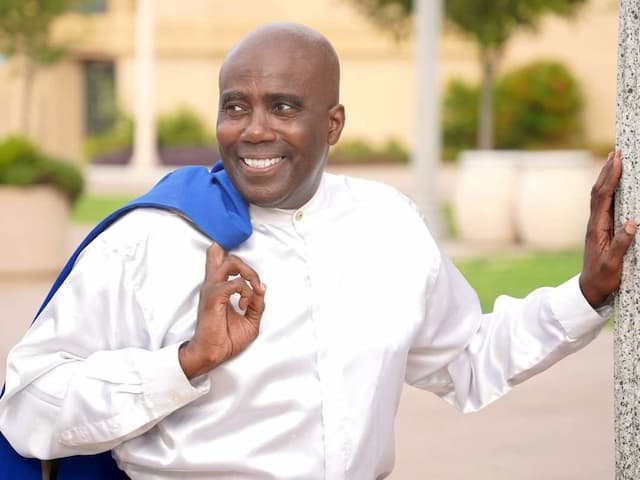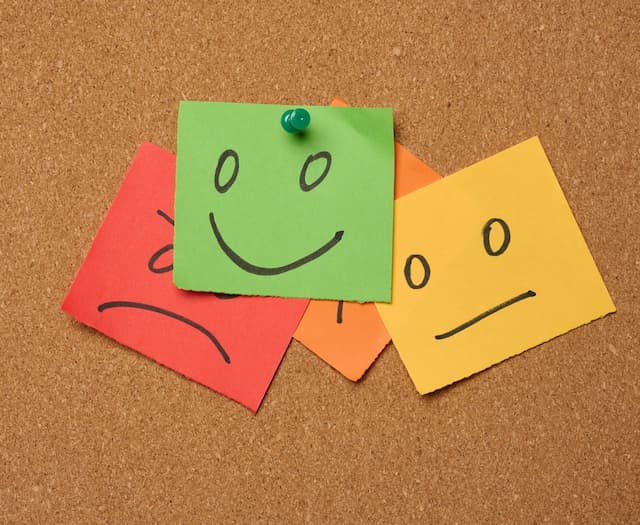Needy AND Needed: A Strange Grace - Joyfully Pressing On
If you feel quite weak and ordinary-if you feel like a mess but have the Spirit-you have the right credentials. You are one of the ordinary people God uses to help others.
-Ed Welch, Side by Side: Walking with Others in Wisdom and Love
Katie couldn’t have picked a better time. It was a rare afternoon when nothing pressed. Still two hours until guests were due, so I took her call. And am I ever glad I did.
An hour later- when co-mingled glad and sad tears were dried and co-mingled sin and suffering were confessed-and this truth dawned bright as a Sanibel sunrise: Every single one of us, is needed and needy. Both.
An Ever-Changing Kaleidoscope
If one member suffers, all suffer together; if one member is honored, all rejoice together. Now you are the body of Christ and individually members of it. 1 Corinthians 12:26-27
Our roles in the body of Christ are not fixed for life. The teacher one day can taught the next. The encourager, encouraged. The merciful, shown mercy. We are an ever-shifting, never static kaleidoscope of needy and needed, of wounded and mended, of strong and weak,
We know God made us to need each other. He sets the lonely in families, and Bear one another’s burdens, and If one falls, his friend can help him up again.
I was the needed when Katie called, but I’ve been the needy, too. For seasons and years and for minutes and days. When infertility’s ache bound me tight, gentle words of Christian sisters’ unwound me. When I sent my SOS text, “So sick. Can you please take the boys?”
Only God’s economy can the needy be at once needed and the needed be so needy. So we who are many are one body in Christ, and individually members one of another. But a body is only as strong as its weakest member, shouts a broken pinky toe. So for the glory of God and the strength of the body, strong arms had best tend to the little toes.
God made us to be mutually dependent, strong and weak together. And ones who were strong sometimes are weak and the ones who were weak are sometimes strong. And we all, weak and strong, need God’s love. That the One who gives the need for love is the Giver of love, is what CS Lewis called, a strange grace.
“Eternal Security is a Community Project”
Take care, brothers, lest there be in any of you an sinful, unbelieving heart, leading you to fall away from the living God. But exhort one another every day, as long as it is called “today,” that none of you may be hardened by the deceitfulness of sin. Hebrews 3:12-13
That is the provocative title of a sermon or two that John Piper preached on Hebrews 3:12-14. Wait before you panic. I give them eternal life and no one can snatch them out of my Father’s hand. Rest assured: God’s own are forever his own and eternally secure. That it is a community project does not undermine God’s preservation. It helps explain how.
The point of the sermons is that God ordains means. Diet and exercise for physical health, prayer and the Word for spiritual health, and believers around us who speak faith-sustaining words into our lives, as one of his means of not being hardened by sins deceitfulness.
Like blogging all day is better than reading to my boys or showing hospitality. That interrupting and being quick to speak is more loving than listening. That prefacing a comment with, I’m not complaining, truly negates the negativity. My friends keep me from being deceived.
In other words, the writer of Hebrews asserts that my being an active member of the Body of Christ, the fellowship of needy and needed, protects me against having a sinful, unbelieving heart.
This is how Christian love works. It is not mushy. Christian love is nitty-gritty, grace-truthing it together. So don’t separate yourself from the very people who could be the means of your life. Don’t cut yourself off from Christian friends. Don’t forsake the fellowship.
It’s Dangerous To Disconnect
Bear one another’s burdens and so fulfill the law of Christ. Galatians 6:2
A burden could be defined as anything, tests or temptations, that could deceive us into doubting God, and forsaking faith. It might be a tragedy that makes us doubt if God is really good. Or it might be a temptation to sin that makes us think sin will make us happier than obeying God. Both are burdens.
We support one another in sickness, and unemployment and loss of loved ones and heartache. We bear then burden of sin when we say hard things so hearts aren’t hardened by sin they don’t see or lies they might believe.
Leprosy is a highly treatable disease now, but it wasn’t always. It did its damage by destroying pain nerves, making the body “devastatingly vulnerable to injury.”
In vivid detail that only could come through his life as a third-world doctor, Paul Brand describes the debilitating effects of leprosy.
I found myself drawn to those who never came [to the hospital], the pitiful deformed people…they had clawed hands with missing fingers, ulcerated feet, paralyzed thumbs, and every conceivable kind of orthopedic defect.
Dr. Brand describes how the body’s inability to “hear” pain can cause terrible, permanent damage. This happens because leprosy erodes and finally destroys the body’s careful response to danger. When a healthy person is beginning to twist his ankle, he nearly always falls. Brand explains:
When your ankle begins to twist, the lateral ligaments of the ankle endure a terrific strain. Nerve cells detecting the strain order the body to take all the weight off the damaged leg immediately. The thigh and calf muscles become flaccid. If the undamaged leg is off the ground taking a step, you will now have no support and will lurch to the ground. Your body prefers falling to forcing the ankle to take weight in its twisted position. You get up feeling a fool, hoping no one was watching, but really you have just achieved a beautifully coordinated maneuver that saved you from a sprained ankle or worse. (In His Image, p. 35)
But when Brand watched a leprosy victim sprain his ankle, the man did not fall. He recalls,
He stepped on a loose stone, turned his ankle completely over so that the sole of his foot pointed inward, and walked on without a limp. He did not even glance at the foot he had just irreparably damaged by rupturing the left lateral ligament! He lacked the protection of pain. Afterward, without the support of the ligament he had ruptured, he turned his ankle again and again until eventually he had to have that leg amputated. (p. 36)
Brand describes shocking outcomes from the inability to feel pain: leprosy patients whose cigarettes would burn unnoticed down to the nub and brand matching scars into the skin between the two fingers. Others whose fingers were gnawed by rats while they slept.
These patients “lost touch” with their own fingers and hands. One even said to Brand, “You know, my hands are not really hands-they’re things, just like wooden attachments.”
Brand concludes, a physical body only possesses unity to the degree that it possesses pain. Pain serves a vital role in protecting and uniting the spiritual Body against sin’s deceit.
When Katie called and shared her burden and when I listened to her pain and echoed back God’s truth, we were united. Pain enlivened the body.
Our Deception Protection
Love one another…this is the commandment you have heard from the beginning, so that you should walk in it. For many deceivers have gone out into the world. 2 John 6-7a
Christian fellowship is a great protection against deception. Walking in love protects us from the devastating and dulling effects of sin’s leprosy. In John’s short second letter, he addresses himself to the elect lady and her children with whom he is united in truth. Walk in love, he writes. I say this because many deceivers have gone into the world.
When we, co-mingled and shifting needed and needy, are united in the truth and sharing the love of Christ (vv. 1-2), the devil doesn’t have a hook on which to hang his lies. Hunting the weak and stray is easier. A lion goes after a lone gazelle.
Christians must be vulnerable. When a sister shared her struggles with gluttony, how she ate half a pan of brownies at naptime- suddenly the floodgates were opened and true confessions flowed. Being vulnerable with our needs bonds us to the Body and emboldens other needy, hurting members to open festering wounds that desperately need air to heal.
Being vulnerable draws people to us, because the world is full of hurting, struggling people. People who are fighting hard battles against trial and temptation.
But we spend so much time hiding our neediness. We need to stop concealing. Ed Welch writes, “Being needy is our basic condition. There is no shame in it-it’s just they way it is.”
Isn’t it when we don’t feel needed that we’re prone to disconnect or let self-pity separate us? And isn’t it when we hide our our neediness that pride’s self-reliance can sever us? So share your need, and others will feel needed. And you strong ones, move towards needy ones. It’s a win-win.
Paul wasn’t ashamed of his need and asked for prayer often (1 Thess. 5:25, 1 Cor. 1:10-11, Eph. 6:19-20, Col. 4:3). Understanding this and practicing asking for help makes us better helpers. We are needy and needed. Both.
Two Ways to Embrace this Grace
The grace is that the one who creates the Needy is the One who fills the needy with good things. His Word and prayer are means. So to is the encouragement of the Body.
1. We are needy. We ask for help. We are vulnerable. We cry out to God, and then phone a friend. We know that another day or in another way we will be the needed, and this comfort will not be wasted. We seek humbly to be at ease with our neediness. And we don’t forsake fellowship.
2. We are needed. We move toward those in need. Whether the need is to be warned of dangers they don’t feel or reminded that God is still good, we go to them. We move toward and we pray. Strengthened and humbled by the Spirit, we bear with the weak and we bear their burdens.
As we get the knack of this needy-needed rhythm, writes Ed Welch, Jesus will be in it and over it. He was weak before we were; he was dependent on his Father and dependent even on mere human beings. He also came to serve rather than be served, and he did it side by side. As far as we are able, we do this with one another. (Side By Side: Walking with Others in Wisdom and Love, p. 13)
On to Mordor, But Not Alone
Our family just finished reading The Fellowship of the Ring. Last week we watched the movie. It could be that I had Katie’s call and Ed Welch’s needed and needy and Lewis’ strange grace on my mind-or maybe it was just Tolkien’s brilliant writing.
Whatever the cause this dialogue choked me up.
One does not simply walk into Mordor, Boromir warns. Its black gates are guarded by more than just Orcs. There is an evil there that does not sleep…Not with 10,000 men could you do this. It is folly!
As the Council of Elrond’s argument reaches fever pitch, Frodo interrupts.
I will take the ring to Mordor. Though I do not know the way.
Gandalf walks toward Frodo, and places his arms on Frodo’s shoulders,
I will help you bear this burden, Frodo Baggins, as long as it is yours to bear.
Then Aragorn kneels,
If I can help you by life or death, I will. You have my sword
And elf and dwarf come forward too, to offer help,
You have my bow, Legolas says. And my axe, offers Gimli.
Even Boromir comes slowly,
If this is indeed the will of the council, then Gondor will see it done.
Finally, Sam bursts forth from behind the bushes and stands beside Frodo,
Heh! Mr. Frodo is not going anywhere without me!
That, friends, is real fellowship. We share and we bear each others’ burdens until sickness and sadness and sin are destroyed. The Ring was destroyed in the fires of Mount Doom. And God will destroy the destroyers of the earth, even the deceiver of the whole world.
Then we will conquer, needy and needed together.
And he who was seated on the throne said, “Behold, I am making all things new.”
Also he said, “Write this down, for these words are trustworthy and true.”
The one who conquers will have this heritage, and I will be his God and he will be my son.
Revelation 21:5, 7







